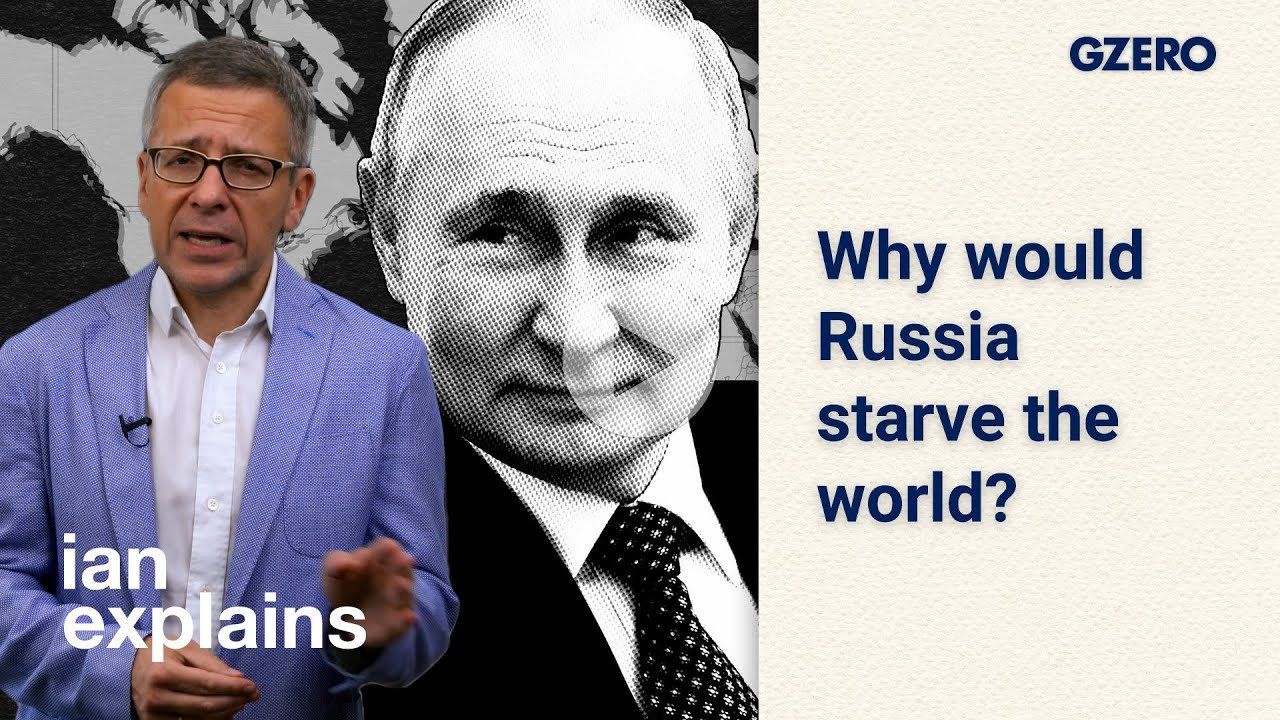Ian Explains
Ian Explains: Why is Russia trying to starve the world?

Ian Explains: Why is Russia trying to starve the world? | GZERO World with Ian Bremmer

Why is Russia trying to starve the world?
Nearly a year-and-a-half into its invasion of Ukraine—after the massacre of civilians in the Kyiv suburb of Bucha, after the indiscriminate shelling of Europe’s largest nuclear plant in Zaporizhzhia, and after the torture of countless Ukrainian POWs—Moscow’s latest move may be its cruelest so far.
In July, Russia pulled out of a landmark wartime deal, brokered by Turkey and the United Nations, that had allowed for 33 million tons of food to flow from Ukraine to countries in Africa, the Middle East and Asia. And soon after announcing their withdrawal from the Black Sea Grain Initiative, Russian forces engaged in strikes against the port of Odessa, destroying substantial grain stocks while also inadvertently damaging the Chinese consulate there (oops).
So why is it in Moscow’s interest to spike global food prices? What does it have to gain from exacerbating hunger in the Global South? Many of the African nations likely to be hardest hit, like Ethiopia, have taken pains to remain neutral in the Ukraine war.
Maybe Putin is losing patience.
For more on the Russia Ukraine war, watch the upcoming episode of GZERO World with Ian Bremmer on US public television and at gzeromedia.com/gzeroworld.
How is the US is reshaping global power dynamics, using tariffs and unilateral action to challenge the international order it once led? Michael Froman joins Ian Bremmer on GZERO World to discuss.
In this Quick Take from Munich, Ian Bremmer examines the state of the transatlantic alliance as the 62nd Munich Security Conference concludes.
At the 2026 Munich Security Conference, Brad Smith announces the launch of the Trusted Tech Alliance, a coalition of global technology leaders, including Microsoft, committing to secure cross-border tech flows, ethical governance, and stronger data protections.